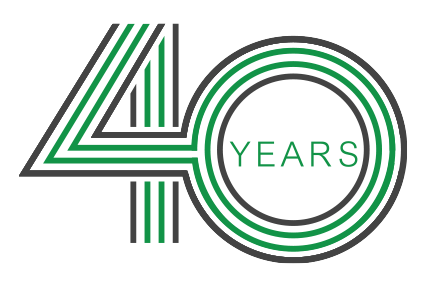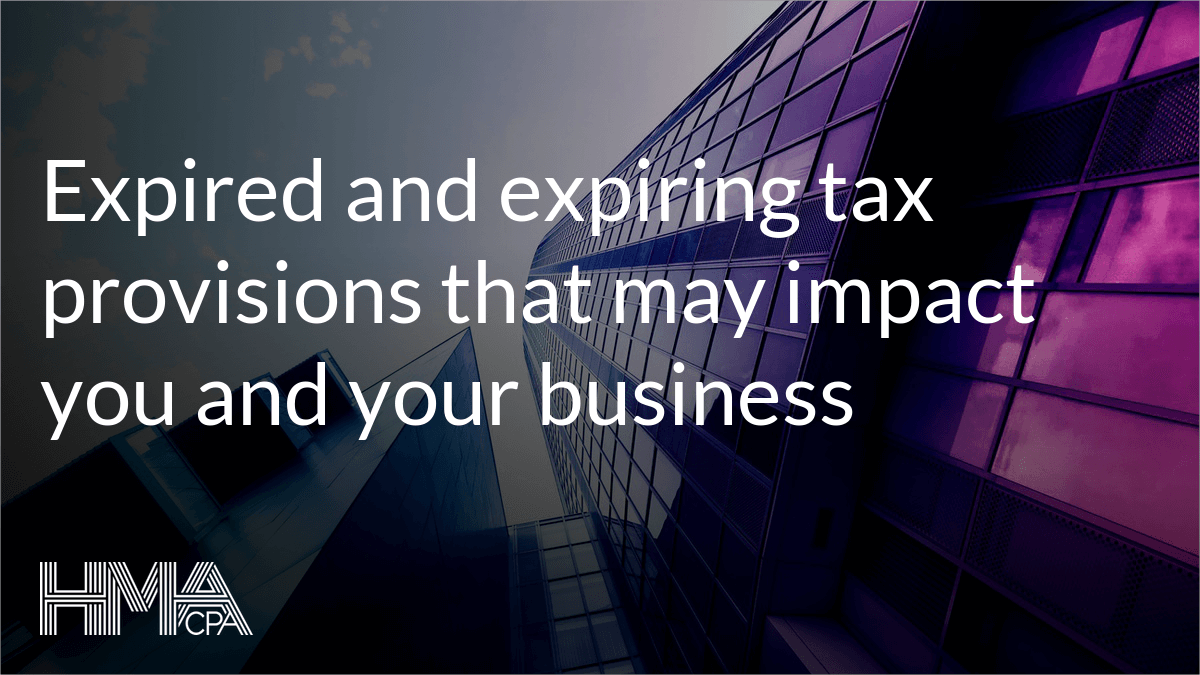Expired and expiring tax provisions that may impact you and your business
ARTICLE | February 02, 2023
The Tax Cuts and Jobs Act (TCJA) of 2017 made several sweeping changes to the tax code. However, many provisions were designed to be temporary and thus contained a “sunset” or expiration date. This article will review several provisions that have either recently expired or are scheduled to expire in the coming years.
Beneficial business interest deduction rules
The business interest deduction limit under section 163(j) is generally limited to 30% of the taxpayer’s adjusted taxable income (ATI) for the tax year. ATI is calculated by taking the taxable income for the year and then adding and subtracting specific amounts, such as deductions for interest and net operating losses.
Prior to the tax year 2022, depreciation, amortization, and depletion were added back to taxable income to calculate ATI. Adding these back typically resulted in a higher ATI, which increased the total amount of business interest that could be deducted.
For the 2022 tax year and thereafter, the TCJA removed the requirement to add back deductions for depreciation, amortization, and depletion when calculating adjusted taxable income (ATI). As a result, some businesses may find that their business interest deduction is reduced compared to previous tax years when they file their 2022 tax return. However, excess business interest may be carried forward to future years.
100% first-year bonus depreciation
100% bonus depreciation is a tax provision set by the TCJA that allows businesses to fully deduct the cost of certain qualifying property in the year it is placed in service rather than depreciating the cost over several years.
Under the TCJA, 100% first-year bonus depreciation is available for qualified business assets acquired and placed into service after September 27, 2017, and before January 1, 2023. This generally applies to depreciable business assets with a recovery period of 20 years or less and certain other property. Machinery, equipment, computers, appliances, and furniture generally qualify. Additionally, certain Qualified Improvement Property qualifies for 100% Bonus Depreciation.
Unfortunately, the 100% bonus depreciation deduction will begin to phase out after 2022, decreasing by 20 percentage points each year until it reaches zero in 2027. Bonus depreciation is limited to 80% in 2023, 60% in 2024, 40% in 2025, and 20% in 2026.
Section 174 expenditures
Section 174 provides certain tax benefits for companies that incur “Research and Experimental Expenditures” in connection with the taxpayer’s trade or business. R&E expenditures generally include all costs incurred in developing or improving a product.
While many provisions of the TCJA went into effect immediately, changes to Section 174 were only effective after December 31, 2021.
Prior to the TCJA, taxpayers could deduct the full cost of R&E expenditures in the year they were incurred. Now, however, these costs must be amortized over at least five years. Fundamentally, this means that businesses will see an increase in taxable income the first year those expenses are incurred.
“Qualified Business Income” deduction
The TCJA introduced a new tax deduction called “Qualified Business Income” (QBI) for non-corporate taxpayers, such as trusts or estates with QBI income, partnerships, S corporations, and sole proprietorships, for tax years starting after December 21, 2017, and before January 1, 2026. This deduction is equal to 20% of the taxpayer’s QBI (excluding net capital gains) or 50% of the W-2 wages paid by the entity, whichever is lower. However, the deduction cannot exceed the taxpayer’s taxable income minus net capital gains.
This provision is scheduled to expire on December 31, 2025.
This article is intended to provide a brief overview of recently expired or expiring provisions of the Tax Cuts and Jobs Act of 2017 that will likely impact business entities. It is not a substitute for speaking with one of our expert advisors. For more information, please contact our office.
Let's Talk!
Call us at (509) 455-8173 or fill out the form below and we'll contact you to discuss your specific situation.
HMA CPA offers a full range of tax, accounting and consulting services for closely held businesses, their owners, and high net worth individuals. We value relationships and are committed to providing close, personal attention to our clients. Though our experience spans over 35 years in the accounting field, we also keep current with ongoing professional education so we can provide you with outstanding technical support and customer service.
For more information on how HMA CPA can assist you, please call (509) 455-8173.

